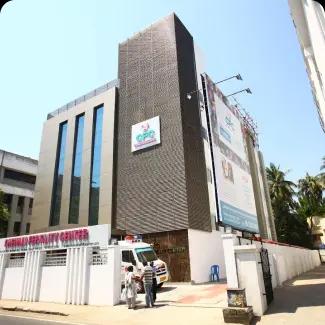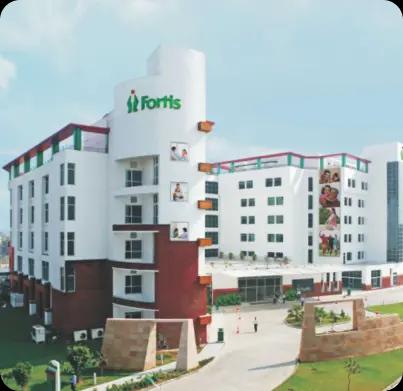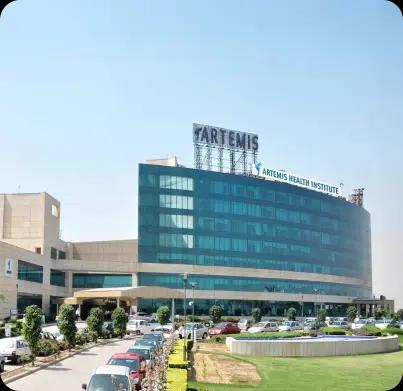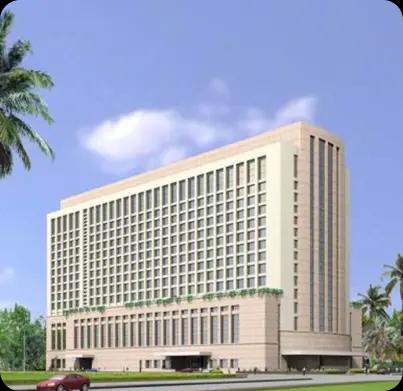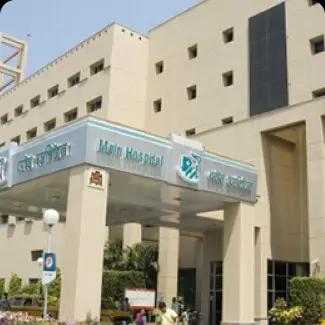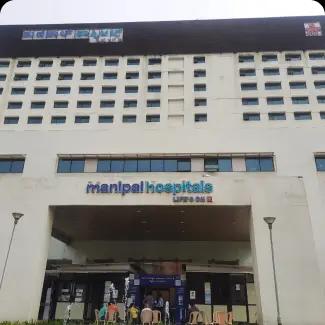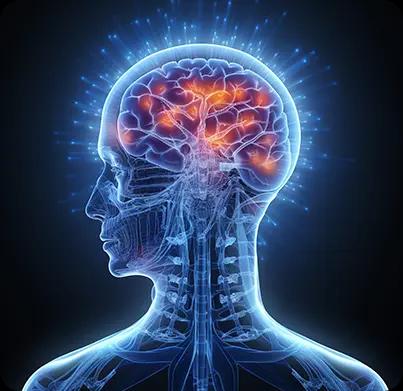
Travel to India's Best Hospitals for Radiology
Radiology
Easy Medical Visa Approvals
Comprehensive Treatment Plans
Travel Booking Assistance
Multi-Language Support
Radiology is a medical specialty that involves using imaging techniques to diagnose and treat diseases and conditions within the body. Radiologists are physicians who interpret medical images to identify abnormalities, guide treatment, and monitor the progress of diseases. If you need imaging studies such as X-rays, CT scans, MRIs, or ultrasounds to diagnose or monitor medical conditions, you should consult a radiologist for expert interpretation of these images. Contact us for expert advice and consultation with leading Radiologists in India.

Karetrip is now NABH-accredited!
Common treatments
Get treated by leading doctors in India
Plan your healthcare journey with Karetrip!
Your journey to good health begins here

Accredited Hospitals
Nationally accredited hospitals for high-quality care

Multi-language Support
Convey your needs in the language you're most comfortable in

Travel Booking Assistance
Seamless booking assistance for your healthcare journey

Personalised Treatment Plans
A treatment journey tailored to all your preferences and needs

Unparalleled Hospitality
Experience exceptional hospitality during your stay

Easy Medical Visa Approvals
Dedicated assistance for medical visa requirements
Karetrip is now NABH-accredited!
This assures you of unparalleled quality and a seamlessly managed medical travel experience.
Partnered with India’s Biggest Hospitals
Know more about Radiology
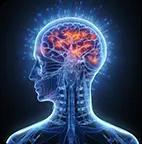
Radiology is a critical branch of medicine that uses imaging techniques to diagnose and treat diseases within the body. This field leverages advanced technology to obtain detailed images of the internal structures, aiding physicians in making accurate diagnoses and guiding appropriate treatments. It plays an essential role in modern healthcare, serving as a cornerstone for the diagnosis and management of a wide array of medical conditions. By utilizing various imaging modalities, radiology enables clinicians to visualize and assess internal organs, bones, and tissues non-invasively. This detailed insight is crucial for early detection, accurate diagnosis, and effective treatment planning.
RADIOLOGY TECHNIQUES AND TECHNOLOGIES
Radiology encompasses a variety of imaging modalities, each with unique applications and benefits
-
Digital Radiography: Utilizes digital sensors for capturing images, providing immediate review and enhanced quality with lower radiation doses.
-
Computed Tomography (CT): Combines multiple X-ray images to produce detailed cross-sectional views, crucial for diagnosing complex conditions.
-
Magnetic Resonance Imaging (MRI): Uses magnetic fields and radio waves for detailed images of soft tissues, essential for assessing neurological and musculoskeletal conditions.
-
Ultrasound: Employs high-frequency sound waves for real-time imaging, widely used in obstetrics, cardiology, and guided procedures.
-
Mammography: Specialized X-ray technology for early detection of breast diseases.
-
Interventional Radiology: Minimally invasive procedures performed using imaging guidance, offering alternatives to traditional surgery.
TYPES OF RADIOLOGY PROCEDURES
X-rays: X-rays are used for quick imaging to diagnose bone fractures, infections, and certain lung conditions.
-
Computed Tomography (CT) Scans: CT scans provide detailed cross-sectional images for diagnosing complex conditions such as brain injuries, cancers, and internal bleeding.
-
Magnetic Resonance Imaging (MRI): MRI produces detailed images of soft tissues, useful for evaluating neurological conditions, joint injuries, and tumors.
-
Ultrasound: Ultrasound provides real-time images for monitoring pregnancy, assessing heart conditions, and guiding needle biopsies.
-
Mammography: Mammography is used for early detection of breast cancer through specialized X-ray imaging of breast tissue.
-
Fluoroscopy: Fluoroscopy creates real-time moving images for evaluating digestive tract function, guiding catheter placements, and conducting barium swallow studies.
-
Nuclear Medicine: Nuclear medicine uses radioactive materials to diagnose and treat conditions such as thyroid disorders, bone infections, and certain cancers.
-
Positron Emission Tomography (PET) Scans: PET scans are used to detect metabolic and biochemical activity, aiding in cancer detection, heart disease evaluation, and brain disorder assessments.
-
Interventional Radiology: This field performs minimally invasive procedures, such as angioplasty and stent placement, using imaging guidance to treat conditions like vascular blockages and internal bleeding.
-
Bone Densitometry (DEXA or DXA): Bone densitometry measures bone mineral density to diagnose osteoporosis and assess fracture risk.
-
Angiography: Angiography images blood vessels using contrast agents to detect blockages, aneurysms, and vascular malformations.
-
Cholangiopancreatography (ERCP and MRCP): ERCP and MRCP are used to visualize the bile ducts, pancreatic duct, and gallbladder for diagnosing and treating conditions like gallstones and bile duct obstructions.
RISK FACTORS
-
Radiation Exposure (X-rays and CT Scans): Increases the risk of DNA damage and cancer with repeated exposure.
-
Radiation Exposure (Mammography): Low-dose radiation carries a minimal risk, balanced against the benefits of early detection.
-
Iodinated Contrast Agents: Can cause allergic reactions and affect kidney function, especially in patients with pre-existing conditions.
-
Gadolinium-based Contrast Agents: Risk of nephrogenic systemic fibrosis (NSF) in patients with severe kidney disease and concerns about gadolinium retention.
-
Claustrophobia and Anxiety: Some patients may feel anxious or claustrophobic in enclosed MRI or CT scanners.
-
Pregnancy: Ionizing radiation poses risks to a developing fetus, potentially causing birth defects.
-
Interventional Radiology: Risks include infection, bleeding, and adverse reactions to anesthesia similar to those in surgical procedures.
Top Hospitals with Renowned Radiology Department
India’s biggest multi-speciality hospitals are here
Consult with India’s Leading Radiologists
Receive exceptional care from the most experienced doctors in India

Dr. Nagamani Pindikura
Interventional Radiologist
13+ Years Of Experience

Dr. Rajesh Anthony
Interventional Radiologist
18+ Years Of Experience

Dr. B. Anand
Consultant Oral Medicine & Radiologist
16+ Years Of Experience

Dr Rajah V Koppala
Vascular Surgeon
30+ Years Of Experience

Dr. Balakumar S
Vascular Surgeon
29+ Years Of Experience
Commonly Asked Questions
What is radiology?
Radiology is a medical specialty that uses imaging techniques, such as X-rays, CT scans, and MRI, to diagnose and treat diseases by capturing detailed images of the body’s internal structures.
How does radiology work?
Radiology works by using imaging technologies like X-rays, CT scans, MRI, and ultrasound to create detailed pictures of the body’s internal structures, aiding in diagnosis and treatment.
How do I prepare for a radiology procedure?
Preparation depends on the procedure. Instructions may include fasting, avoiding certain medications, or wearing specific clothing. Detailed preparation guidelines will be provided when you book your appointment.
Are radiology procedures safe?
Yes, radiology procedures are safe. Advanced technology and follow strict safety protocols to minimize risks, including careful radiation dose management.
What should I expect during my imaging appointment?
Expect a brief check-in process, followed by the imaging procedure. The duration and specifics will vary depending on the type of imaging.

Do you still have a query?


"I had a successful surgery at Fortis Escorts Hospital, and it was all thanks to Karetrip's help in finding the right hospital for me. The entire process was smooth and stress-free, with Karetrip handling all the arrangements and answering any questions I had. The medical team at the hospital was outstanding, and the facilities were top-notch. I highly recommend Karetrip to anyone looking for a tension-free healthcare experience."
Read MoreFatima
Chattogram


"Thanks to Karetrip, I got connected with MAX Hospital in New Delhi. The team guided me through every step – from finding the right doctor to handling travel and visas. They made a daunting process feel like a breeze. The care I received at MAX Hospital was outstanding, and I can't thank Karetrip enough for making it possible. They truly put patients first and go the extra mile to ensure a smooth healthcare journey. I'm grateful beyond words!"
Read MoreHasan
Dhaka


"At first, I was unsure about having a medical procedure done in a foreign country. However, Karetrip's team at Indraprastha Apollo Hospital made me feel much better. The hospital was very clean, modern, and had everything they needed to help me. The staff were very kind and did everything they could to make me feel comfortable. I'm really happy with how my treatment turned out, and I appreciate Karetrip for making it easy and stress-free."
Read MoreImran
Sylhet
 Google Reviews4.9/5
Google Reviews4.9/5




I had a successful surgery at Fortis Escorts Hospital, and it was all thanks to Karetrip's help in finding the right hospital for me. The entire process was smooth and stress-free, with Karetrip handling all the arrangements and answering any questions I had. The medical team at the hospital was outstanding, and the facilities were top-notch. I highly recommend Karetrip to anyone looking for a tension-free healthcare experience.
Fatima
Chattogram
 Google Reviews4.9/5
Google Reviews4.9/5








